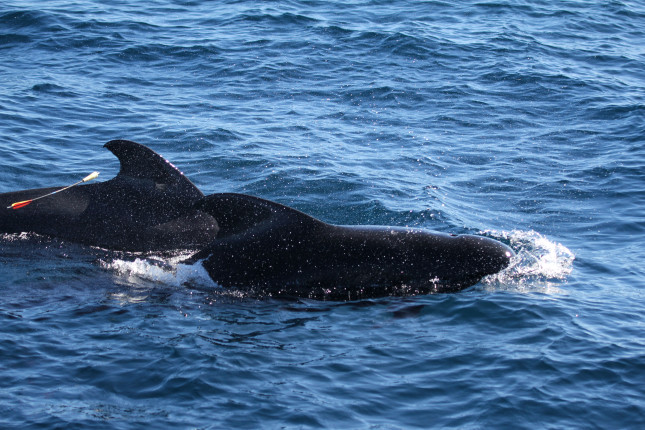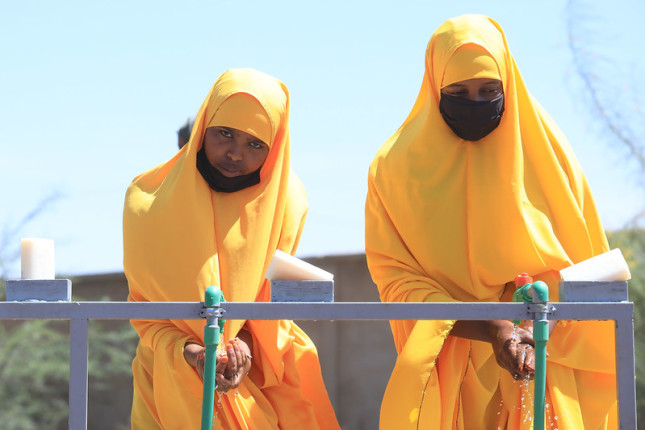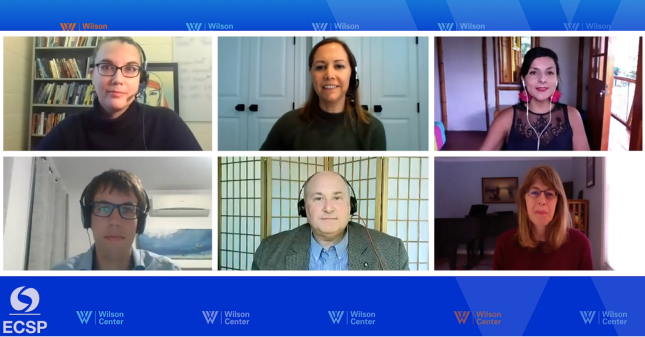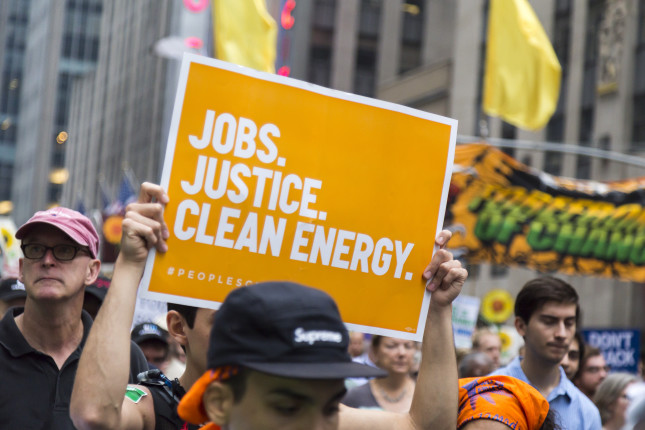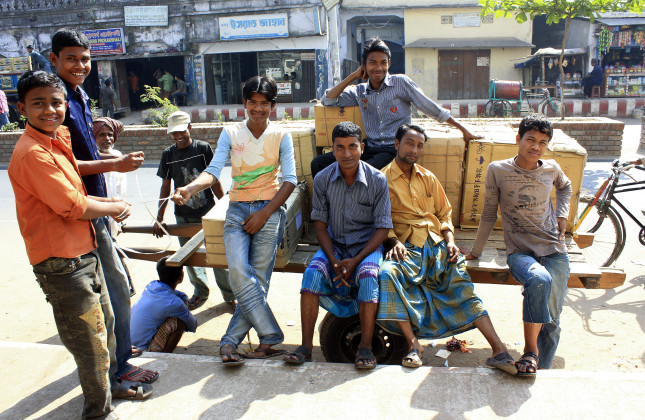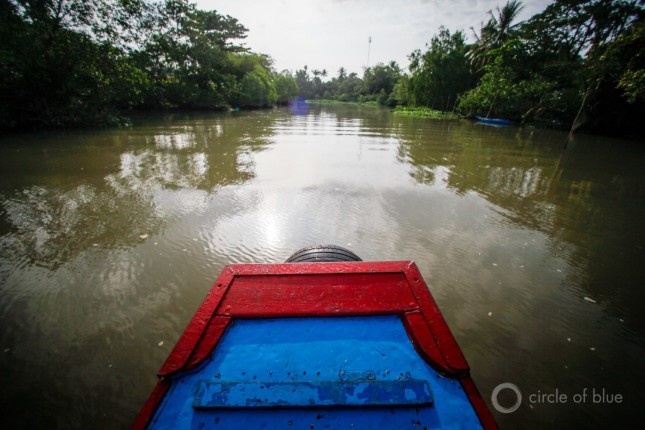-
Native American Midwives Help Navajo Families Thrive
› When Navajo Midwife Nicolle Gonzales talks with Native American women about birth, there’s a sense something is missing, she said in this week’s Friday Podcast. “But,” she said, “we don’t know what it is.” Gonzales grew up and remains on a Navajo Reservation in New Mexico. She became a midwife and founded the Changing Woman Initiative (CWI) to address unmet maternal health care needs in her community. She is of the Tl’aashchi’I, Red Bottom clan, born for Tachii’nii, Red Running into the Water clan, Hashk’aa hadzohi, Yucca fruit-strung-out-in-a line clan, and Naasht’ezhi dine’e, Zuni clan.
When Navajo Midwife Nicolle Gonzales talks with Native American women about birth, there’s a sense something is missing, she said in this week’s Friday Podcast. “But,” she said, “we don’t know what it is.” Gonzales grew up and remains on a Navajo Reservation in New Mexico. She became a midwife and founded the Changing Woman Initiative (CWI) to address unmet maternal health care needs in her community. She is of the Tl’aashchi’I, Red Bottom clan, born for Tachii’nii, Red Running into the Water clan, Hashk’aa hadzohi, Yucca fruit-strung-out-in-a line clan, and Naasht’ezhi dine’e, Zuni clan. -
Nature-based Solutions Vital to Mitigating Conflict-linked Environmental Damage
›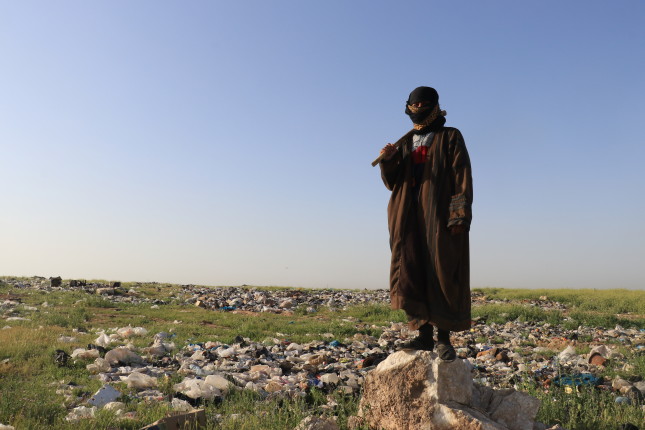
When the dust settles after wars and armed conflicts, people are eager to rebuild their lives and livelihoods in the wake of the devastation wrought upon their country. Often one issue is largely absent in post-conflict reconstruction and development planning: addressing conflict-linked destruction of the environment.
-
The Over-whale-ming Plastic Problem
›Plastic pollution has infiltrated every ecosystem in every ocean on the planet, but perhaps the most iconic organisms impacted are the whales. The problem is monumental. For example, consider the blue whale. Our most optimistic estimates put the global blue whale population size at about 25,000 individuals (down 89 percent since before commercial whaling began in 1911). Based on recent estimates, an amount of plastic waste equivalent to about 3.5 times the weight of the entire blue whale population is put into the ocean every year. That staggering figure alone is enough to make one feel, well, blue, but the devastating impact is underscored by the now-familiar images of deceased whales—their guts bursting with plastic bags or completely entangled in derelict or discarded plastic fishing gear.
-
A New Year Brings Enduring Challenges: Financing for Water and Sanitation Utilities During COVID-19
›
Eleven months have passed since COVID-19 was declared a global pandemic by the World Health Organization (WHO). As we rang in the new year, the world surpassed two million deaths due to COVID-19. While it is encouraging that 77 countries have distributed 168 million COVID-19 vaccine doses, only a small fraction of these are in low-income countries. Vaccinations may not be widely distributed in most of sub-Saharan Africa until 2022-2023. Furthermore, the new COVID-19 variant recently discovered in South Africa is estimated to be 50 percent more contagious, underscoring the need for a collaborative international response.
-
Experts Spotlight Bottom-Up Approaches and the Impacts of Conflict on Infrastructure in the Next Wave of Environmental Peacebuilding
›
“For 30 years, a community of researchers, practitioners, and policymakers have been working to untangle the complex relationships between environmental change and human and national security, and find entry points for policies and programs that build on these connections to create a more resilient and sustainable peace,” said Lauren Risi, Project Director of the Wilson Center’s Environmental Change & Security Program at a recent event that featured contributors to a new special issue of International Affairs on environmental peacebuilding.
-
Top Biden Climate Advisor, Others Preview 2021 Energy and Enviro News
›February 12, 2021 // By Joseph A. Davis
White House climate advisor Gina McCarthy gave an exclusive preview of the Biden administration’s Jan. 27 rollout of climate initiatives to more than 1,100 journalists, environmental experts and others watching a virtual program organized the same day by Society of Environmental Journalists.
The SEJ’s ninth annual Journalists’ Guide to Energy & Environment look-ahead event, entirely online due to the pandemic, was hosted for the second year by the National Geographic Society and co-sponsored by the Wilson Center.
-
Early Interventions in Men’s and Boys’ Health and Well-Being Have Lifelong Effects
›
“How do we incorporate more men into the work that we’re doing?” said Dominick Shattuck, Director of Monitoring, Evaluation, and Learning for Breakthrough ACTION at Johns Hopkins Center for Communication Programs (CCP), at a recent event hosted by the MenEngage Alliance. The event focused on interventions to meaningfully engage men and boys in health programming, and how “life course theory” can help determine the best timing for male engagement.
-
Four International Water Stories to Watch in 2021
›
The travails of the last year, when a bat virus infected humans and turned the world upside down, were an unfortunate reminder of the inseparable ties between society and the natural environment.
So it is with water, which will again this year direct the course of history, through events small and large.
What are the large events to pay attention to? What are the trends and flashpoints?
 A Publication of the Stimson Center.
A Publication of the Stimson Center.

 When Navajo Midwife Nicolle Gonzales talks with Native American women about birth, there’s a sense something is missing, she said in this week’s Friday Podcast. “But,” she said, “we don’t know what it is.” Gonzales grew up and remains on a Navajo Reservation in New Mexico. She became a midwife and founded the
When Navajo Midwife Nicolle Gonzales talks with Native American women about birth, there’s a sense something is missing, she said in this week’s Friday Podcast. “But,” she said, “we don’t know what it is.” Gonzales grew up and remains on a Navajo Reservation in New Mexico. She became a midwife and founded the 